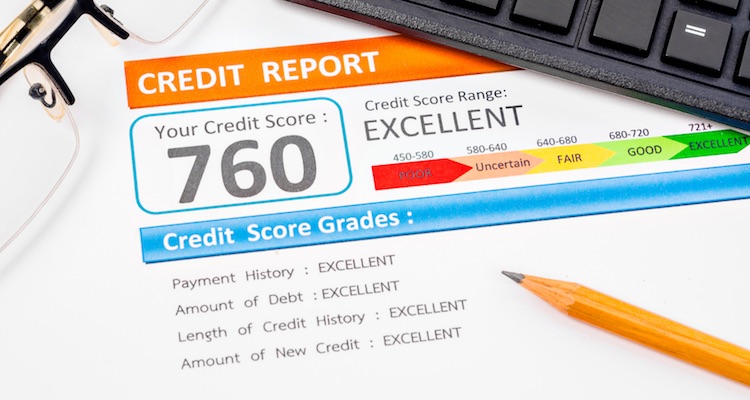Investopedia now wants to ‘match’ financial advisers with readers
Ask a VC: How startups are turning away traffic from payday lenders
How one startup aims to help ‘credit invisible’ foreign workers in the U.S.
‘Sick and tired of no one innovating’: Confessions of a financial tech entrepreneur
Bank of America is testing employee-less branches to serve digital-first customers
With new finance site, About.com targets the ‘adulting’ generation
Making better financial decisions – with Michael Carvin
Decisions like buying a home trip up even the smartest minds. There are so many variables, so many moving parts – it’s real hard to wrap your mind around it.
Today’s guest on Tradestreaming Radio, Michael Carvin, founded a company to assist with just that problem. His recently-launched firm, SmartAsset, provides a next-generation toolset to clearly answer tough problems like buying a home and the decision to buy versus rent.
Michael joins us to discuss his move from private equity into entrepreneurship, why people have such a hard time making tough financial decisions, and how SmartAsset solves these problems.
Listen to the FULL episode
About Michael
 Michael has a lot of experience in private equity and is the founder and CEO of SmartAsset.
Michael has a lot of experience in private equity and is the founder and CEO of SmartAsset.
Continue reading “Making better financial decisions – with Michael Carvin”
SmartAsset raises money after successful launch
I don’t know about you but many of those thousands of financial calculators are pretty useless (for some that don’t suck, check out the 80 financial calculators that FinancialMentor just launched).
Why do most financial calculators suck?
Well, for one thing, they’re not personalized. While I’m in control of the inputs and some of the assumptions, the advice spit out is generic regardless of whether I live in New York City or San Francisco.
Other calculators like those focused on mortgages make outlandish assumptions about the type and size of mortgages I could purchase regardless of whether I’d actually qualify for any of them.
SmartAsset: a better financial planning tool
SmartAsset changes all of that. It’s a financial calculator 2.0. Launched 3 weeks ago, the sweetly-designed site enables people to address specific financial purchase decisions: like ‘How big a house can I buy’ and ‘Should I buy or rent’?
But behind the calculations are some nifty mathematics and data personalization. For example, when I determine how big a house I can afford, the platform sucks in the fact that I’m logging in from NY, which has specific closing costs associated with it. Specific loan requirements for my area. A different tax rate than other geographies.
So, when I click the button, I can be pretty sure that the advice (and it is advice) that’s spit out of the calculator is pretty darn realistic.
Anyway, I think it’s a great tool and apparently so do 14,000 other people — the number of people who have built financial profiles on the Y-Combinator-backed site. The platform is built to rapidly introduce new calculations in the same spirit. The company also announced a $900k financing round.
Check out SmartAsset and let me know what you think.
Would you use SmartAsset for your financial planning?
App of the Week: HelloWallet
As much as we talk about the advances in investing technologies/platforms on Tradestreaming, personal finance tools are really kicking it.
One of the most popular is HelloWallet. Like the model that its predecessor Mint.com pioneered, HelloWallet is meant to not only track and manage personal spending/budgets, but optimize them as well.
Visualizing your financial life
If you’re like me, you’re a visual person. One of the hardest things to tackle with personal finance is to really understand all the ins-and-outs, money-in/money-out.
Our lives are complex. Spending on individual items needs to be put into the larger context of everything going on in our financial lives.
HelloWallet does a powerful job representing data with useable visuals and the entire service is centered around goals, the guideposts that help determine what we should — and shouldn’t — be doing financially.
After hooking up your bank account and credit cards and filling out simple budgetary items, HelloWallet begins spitting out personalized daily guidance. These zen-like tips are comprised of ways to address lowering spending, reorganizing debt, saving more, etc.
Social benchmarking and conflict-free
HelloWallet also provides social benchmarking by explaining what others in your social/geographic group spend on particular items so you can tell whether you’re overspending or not.
One of the gripes people have with Mint is that its revenue model is to refer its users to 3rd party sites and receive remuneration for any money spent on that new relationship.
HelloWallet doesn’t do that and makes a point of emphasizing that it’s conflict-free. The app comes with a free, no-credit-card-needed 30 day trial. It’s generally $8.95 per month.
Check out HelloWallet.















